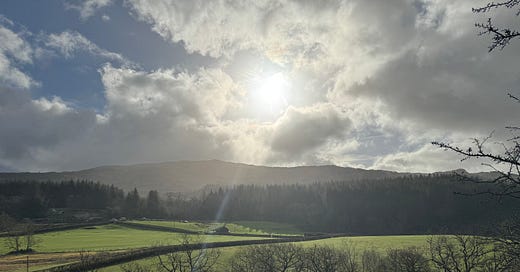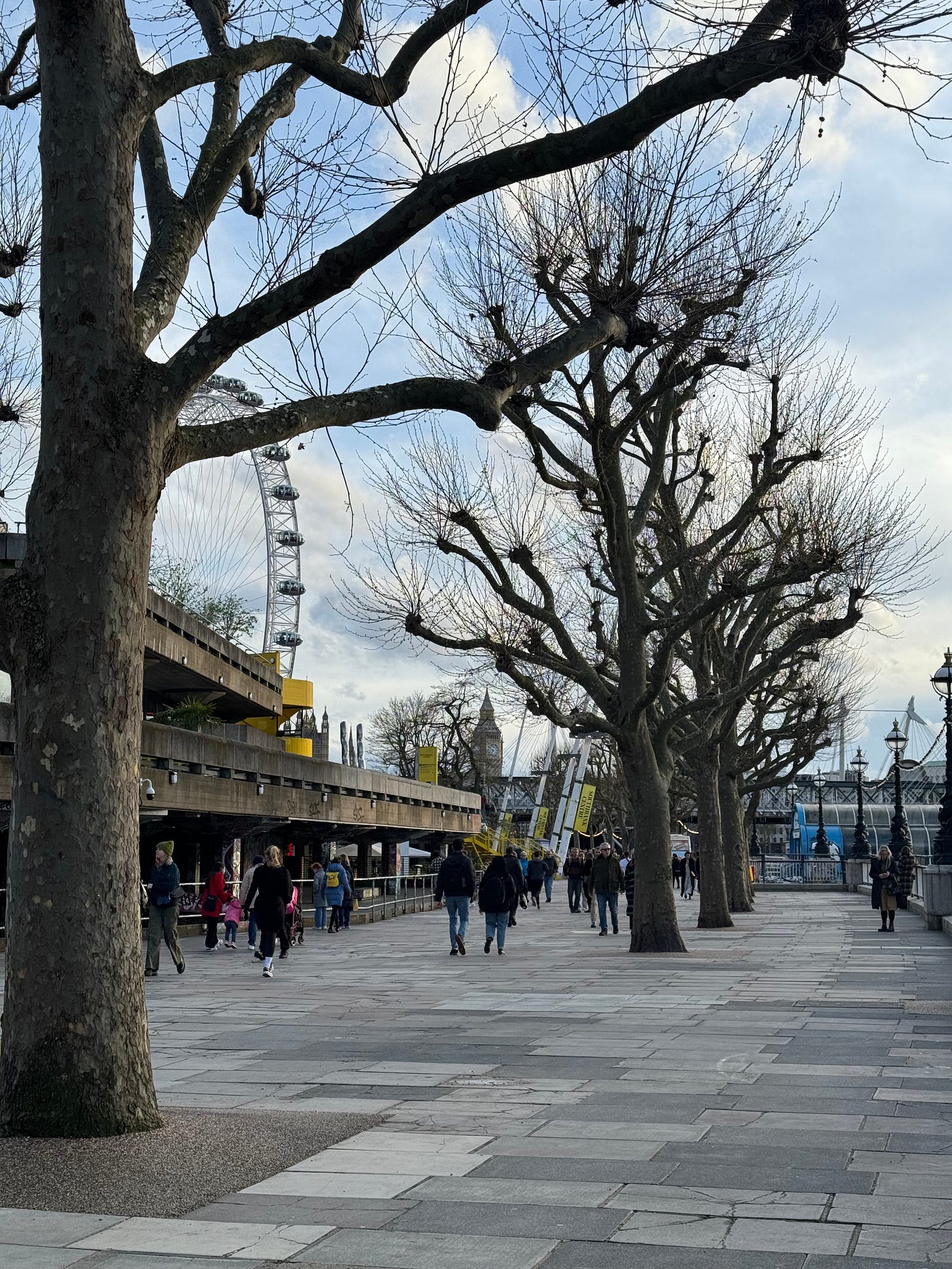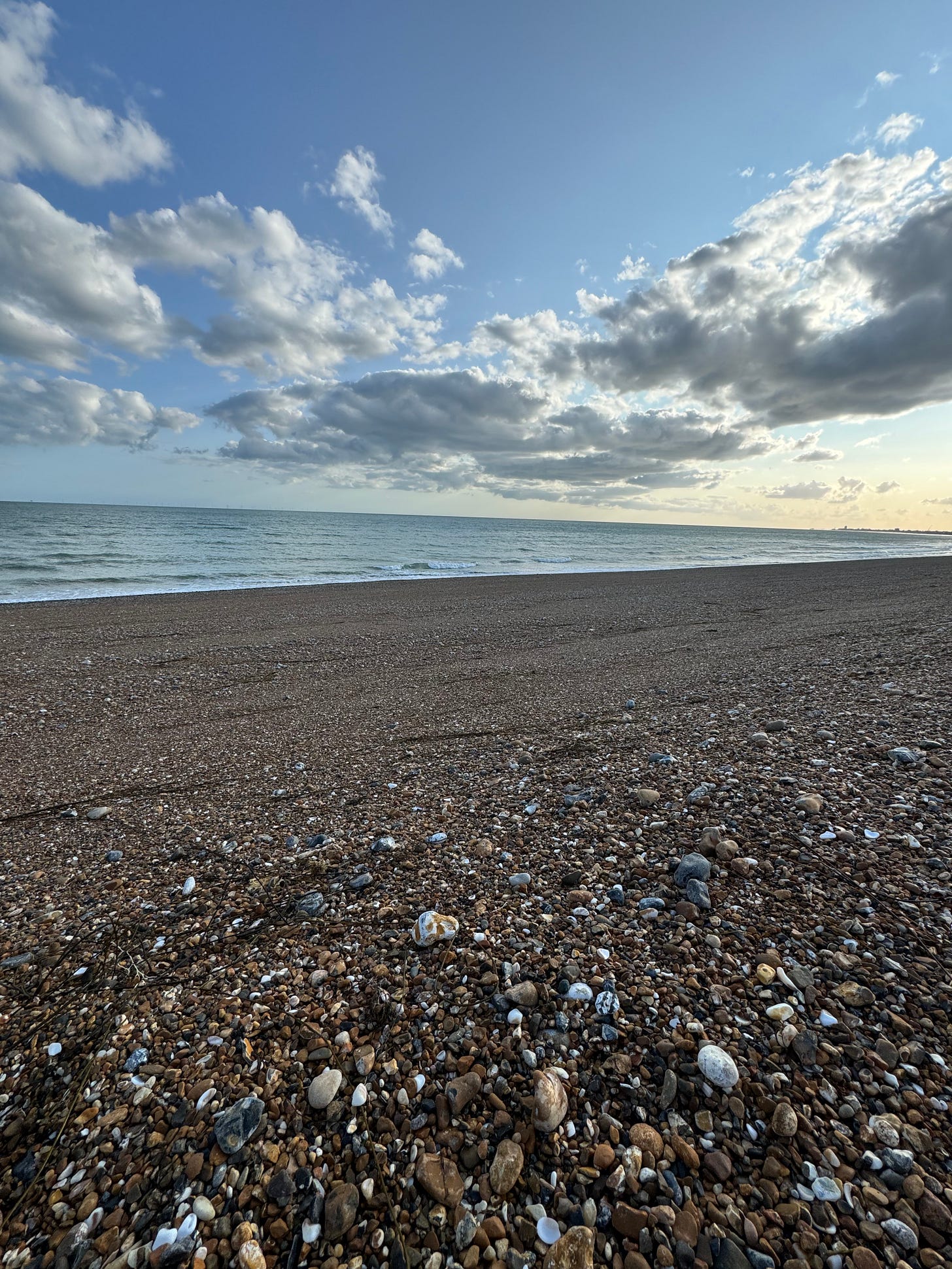You can hardly pick up a memoir today (especially if it’s written by a white, middle-class, Englishwoman) without finding gentle bucolic scenes detailing the splendour of nature. The author typically spends a good portion of the book mulling over a problem in her life or the world as she meanders through the countryside, naming the trees, flowers, and small woodland creatures she comes across, with a dash of local history thrown in. Information about a bird’s migration pattern or stories about a little-know townswoman who did something extraordinary 200 years ago are woven through the narrative, providing a subtext that applies to the author’s modern-day problem. It has the effect of making the reader feel smart, as if they’ve learned something of the world beyond their own quotidian life. Reading them is like receiving a warm hug in a simpler time, a reminder that nature heals all if only we let it.
I find myself both drawn to and alienated by these books, simultaneously envying the ease with which the authors exist in nature, if not in the world, and wondering in a slightly sneery way if they know how privileged they are. Not privileged in regard to their white, middle-class English-ness (though there’s that too), but because they know the land they walk upon so well. Someone, somewhere along the way (usually a nurturing and self-sufficient parent or grandparent whom they write about as well), has taught them to identify the flora and fauna they played amongst as a child, how to forage sustenance that they don’t actually need because the fridge back home is full, and to perform, for fun, the traditional homesteading tasks that their ancestors did out of necessity - pickling, preserving, chopping firewood, making decorative items from dried flowers and grasses, creating tinctures from herbs with medicinal properties. Some of these women may appear pale and delicate, but they could probably survive the Oregon Trail or the zombie apocolypse for at least a couple of months.
Though I am not the envious type and rarely compare myself to others, I can admit that I am insanely jealous of them. But not for the reasons you might expect.
Unlike a person who grew up in a city or the suburbs, who would have no real reason to have acquired such skills, I am jealous because I don’t possess them despite being raised in a rural area of the American Midwest. For several years, I even lived on a working farm and owned a horse. With far hotter summers and much harsher winters, on a vast expanse of land that someone from a small island could scarecely imagine, you’d be forgiven for thinking I have the same outdoorsy competence the memoirists possess, perhaps even more.
But the truth is that aside from learning how to look after and ride my horse, how to dig up worms for fishing in the soft soil beneath the shade trees, and how to climb the mountain of spiky hay parcels bound with twine so that I could read my book in the barn unseen, I wasn’t out there learning how to do practical things. My parents were not farmers and only rented the farmhouse, too busy working their full-time jobs and caring for me and my sisters to spend much time outside unless they were performing the endless rotation of seasonal chores required of them: mowing grass, raking leaves, and shovelling snow. They had no time for making cosy crafts and teaching me survival techniques when they were in survival mode themselves.
I loved the land we lived on, but without a true understanding of it or what my relationship to it was, I often felt like a fraud. Someone who grew up in the countryside but had no real countryside skills. Someone who spent much of her childhood outside but had no real knowledge of nature. I could not name the species of birds and trees I saw, and no one taught me how to sew or make jam from scratch. There were no ancient woods to wander in, no rivers to stroll beside, no gentle hills to navigate along with my gentle thoughts. I was Laura Ingalls without Ma and Pa, a lonely girl twirling her skirts in the prairie grass, sun blazing overhead, fields as flat and far as the eye could see.
Eventually, I taught myself the skills I considered essential for my own survival: how to be independent, how to find inspiration and comfort in words, and, most importantly, how to escape from a life I felt I wasn’t meant to live. Cities became my obsession, where the creation of art is valued as much as what is created through physical labour and you have more than crickets for company. I dreamed that clichéd dream of being a writer in New York, accepting that that likely meant being broke and world-weary but also feeling certain that I’d be happy and fulfilled. I imagined watching the teeming masses living their interesting, cultured lives and writing about them from cafés and park benches, a cigarette tucked between the corner of my lips. Within a couple of years I’d be one of them, landing a job at a magazine writing witty personal essays and immersive features, going undercover with the sex workers and street sweepers who keep the city both gritty and clean. It was a dream that kept my belly from grumbling too loudly when there were nothing else to sustain me.
New York never happened, but something even better came along - London.
When I arrived in England aged 20, I was hungry for new experiences and a new home. There were so many things to discover about the people and the land: the way they behaved and spoke, the slang and cultural references, the history and geography I had previously been ignorant of. Here, I got to be an explorer, an ethnographer, a mimic and a mime. In ways that New York couldn't have been, England became a living science project, my own life now fodder for the essays I planned to write about others. But along with learning anglicized anglicised spellings and how to navigate the Tube, I was also learning that in order to become the person I wanted to be, I should probably conceal the one I really was.
My nationality announced something about me to the world that I didn’t like or want, a bad smell that followed me around, especially in the Bush years. Whatever star-spangled patriotism had been ingrained in me from birth declined rapidly when it became immediately and painfully obvious how much of the greatest country on earth schtick was nonsense propaganda. I was embarrassed by my naivety, aware of how sheltered and unwordly I must seem, if not to others than certainly to myself.
Desperate not to be pigeonholed as a know-nothing country bumpkin, I quickly affected a more streetwise front. I tried to make my hometown sound bigger than it was and downplayed the fact that I’d lived on a farm. I talked about trips to Chicago as if they were regular when in fact I’d only been twice. I didn’t tell anyone about the first time I rode an overground train in London and, as it neared another track occupied by a train travelling in the opposite direction at speed, clenched my eyes shut in anticipation of the impact, sure I was about to die. Like the natives, I kept calm and carried on, though under the surface I was paddling like mad.
I found myself thinking of the film Beetlejuice, wishing I’d been issued with an immigrant’s version of the Handbook for the Recently Deceased. Similar to the Kübler-Ross stages of grief, I found myself cycling through various emotions and states of being as I underwent the transition: first there was rose-tinted admiration and excitement, followed by homesickness and the yearning for familiarity, then anger at all the things I’d decided were ‘wrong’ about Britain: its fondant cakes and lack of commonsense packaging; its overt snobbery and covert inferiority complex towards its former, more successful colonies; its damp walls and cold toilets; its impossibly small parking spaces and ridiculously drunken louts.
Finally, after about five years, I settled into the penultimate stage: acceptance. And after another five, the one which not everyone gets to experience: love. For better or for worse, in blue skies and in grey, in wind and in rain, forsaking all others, I found myself eternally bound to a place not by birth but by choice. Though it hadn’t been my original dream, England became the dream I never knew I wanted, complete with a husband and two children and, eventually, a move out of the city to the south coast.
It is here in this quieter town, with its green hills and windswept shores, that I have begun thinking again of the skills that should have been my birthright, that perhaps are embedded somewhere deep within me despite having no teacher. More and more often, I feel the land calling to me, inviting me to know it better.
I want that more than anything but still I hesitate, embarrassed by my ignorance of its rhythms, its history, and its creatures’ names. I crave the knowledge and familarity of the memoirists, people whose birthrights were fulfilled. I imagine them red-cheeked in wellie boots and waterproof coats tramping over the Downs with their dogs and children in tow, confidently pointing out various plantlife with their soil-stained fingers, like their own parents did with them.
One thing I do know is that I can’t waste any more time on envy, or on feeling that a secret was kept from me. I don’t need instruction from elsewhere to learn about the natural world around me, I need only to experience it, to be brave enough to introduce myself to a landscape that I’m aching to befriend. All I have to do is show up, day after day, with a willingness to observe, ask, and listen. If I am patient, perhaps the knowledge will come to me instead of I to it. Perhaps I will fall in love with uncertainty like I have fallen in love with England, my home for better or worse.
Who knows, maybe one day I’ll write my own nature memoir, where instead of describing what I know of the earth, I will describe what it taught me by simply existing in it.







I was rapt reading this! Such engaging writing and I resonate so much with what you're saying. Ambling through the Norfolk countryside with my writing group I've been awed and shamed by their knowledge of the flora and fauna.
But my fascinating discovery has been an app called Picture This. Take a photo of a plant and it won't just tell you it's name but ALL it's names - historical and regional, it's properties and uses, any appearance in poetry or prose and any myths and symbolism tied to it.
This found text has sparked so much in my imagination and taught me at least some of the names of things around me. Like with people, your relationship with these things are deepened when you know their names and a little of their history. I particularly like to know the names given them by ordinary people living alongside them - the posh Latin name doesn't interest me!
Here's one that came with the help of the app:
Naming the Flowers
Toadflax clutches the stone,
Mother of millions: feet firmly
Rooted between the flint.
Pennywort turning her many faces to the sun,
Wandering Sailor, seeking the sea?
Such an innocent bloom:
Tiny tendrils cling, soft petals
Shine against stone.
I wonder why my ancestors
Saw this tiny flower
Trembling on the seawall,
And felt the need to endow
It with so many names.
I puzzle over why
Some ancient fishwife,
Or aran-clad homeward bound sailor,
Saw this creeping beauty
On the cottage garden wall
And thought: I’ll call that Devil’s Rib.